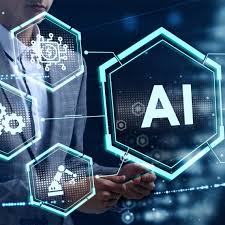Artificial intelligence (AI) is really a rapidly developing area that has been a cornerstone of modern technologies and creativity. At its primary, Artificial intelligence may be the simulation of individual intelligence by models, especially computer methods. These systems can perform tasks that generally need human intelligence, such as discovering, reasoning, dilemma-solving, impression, and vocabulary understanding.
Forms of AI
AI can be broadly categorized into 2 types: narrow AI and basic AI.
Thin artificial intelligence (umela inteligence): Also called poor AI, this sort was created to execute distinct tasks in a restricted range. These include voice assistants like Siri and Alexa, advice systems on internet streaming systems, and autonomous autos. Thin AI excels at its selected tasks but is lacking in the capability to execute duties outside its website.
Basic AI: Also called solid AI, this particular type can perform any cerebral project a human being can. Basic AI continues to be theoretical, as experts strive to make devices that may understand, learn, and use knowledge across various domains independently.
AI Technologies
Numerous key systems push AI improvement:
Machine Discovering: A subset of AI, machine studying focuses on creating algorithms which allow machines to understand from information and boost their functionality with time without specific coding.
Deep Discovering: This method, a subset of device discovering, makes use of artificial neural networking sites with several layers to version complex styles in details. It’s instrumental in image recognition, organic vocabulary processing, plus more.
All-natural Language Processing (NLP): NLP permits devices to understand and communicate with individual vocabulary. Apps consist of vocabulary translation, chatbots, and emotion analysis.
Computer Vision: This technological innovation allows models to translate and recognize aesthetic info through the community, resulting in programs like face recognition, healthcare imaging, and thing diagnosis.
Honest and Social Factors
As AI continues to develop, it boosts many honest and social concerns:
Bias and Fairness: AI methods can inherit biases found in their training information, creating unjust or discriminatory effects.
Security: AI can potentially infringe on individuals’ privacy through details assortment and security.
Job Displacement: Automation through AI may lead to work displacement in some businesses, despite the fact that this may also produce new options.
Accountability: As AI solutions make decisions, determining who is mainly responsible for their activities and consequences becomes increasingly sophisticated.
The Future of AI
AI offers the possible ways to revolutionize market sectors like medical care, finance, transport, and much more. Even so, its prevalent adoption demands mindful legislation and ethical considerations to guarantee it rewards community as a whole.
As AI technology continue to progress, we must attack a balance between advancement and honest practices to control the full possible of artificial intelligence to the improvement of humankind.
